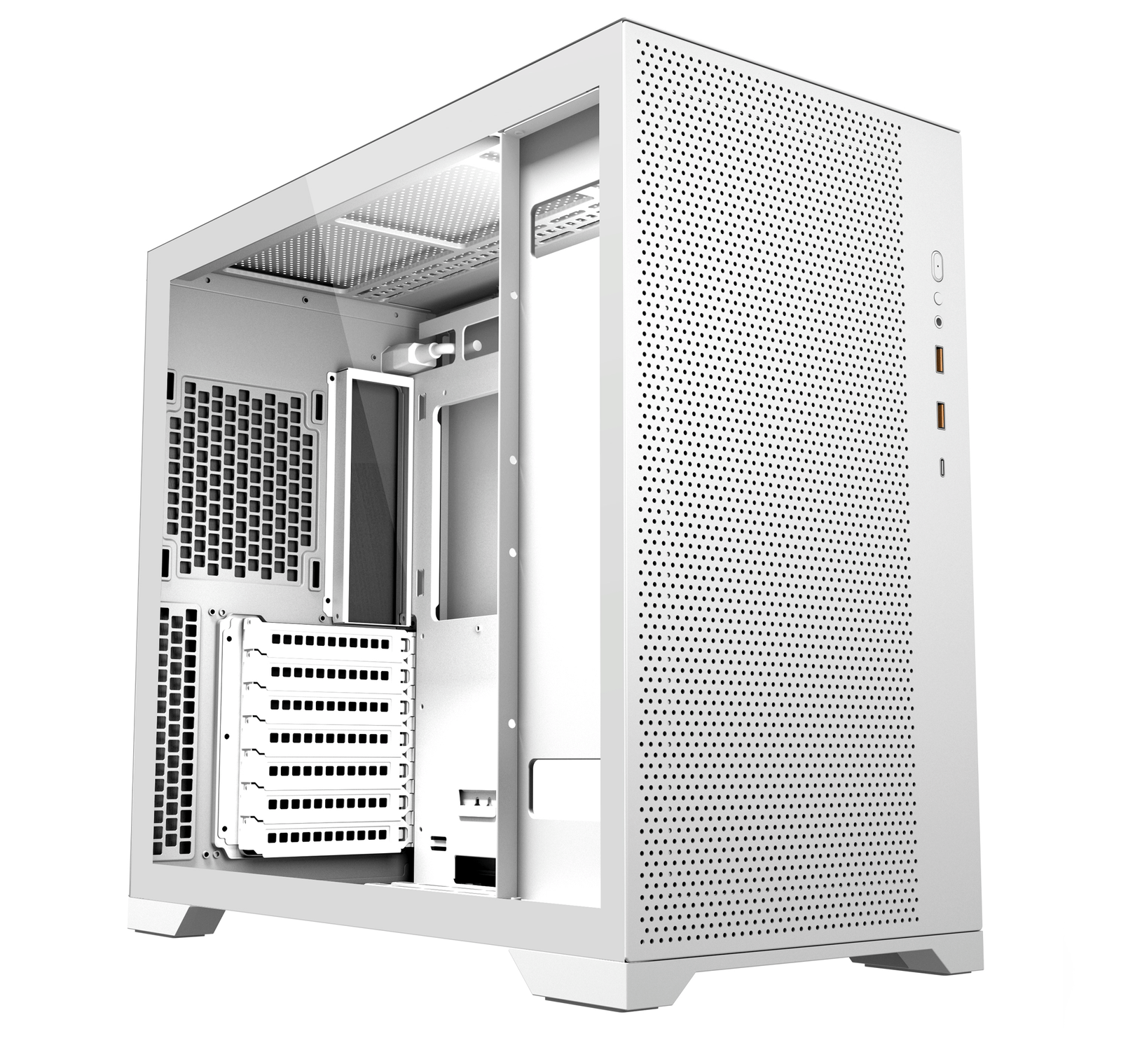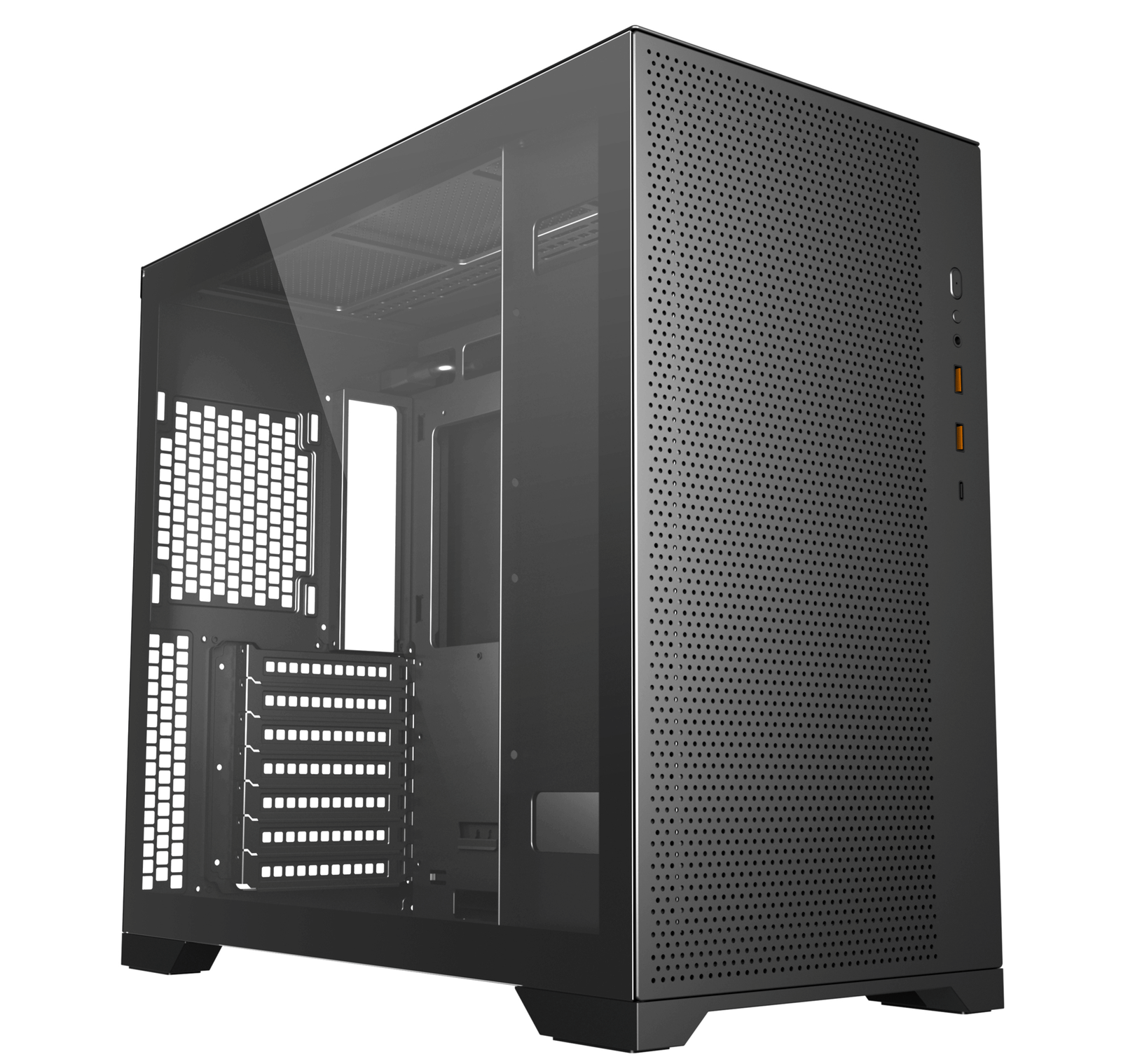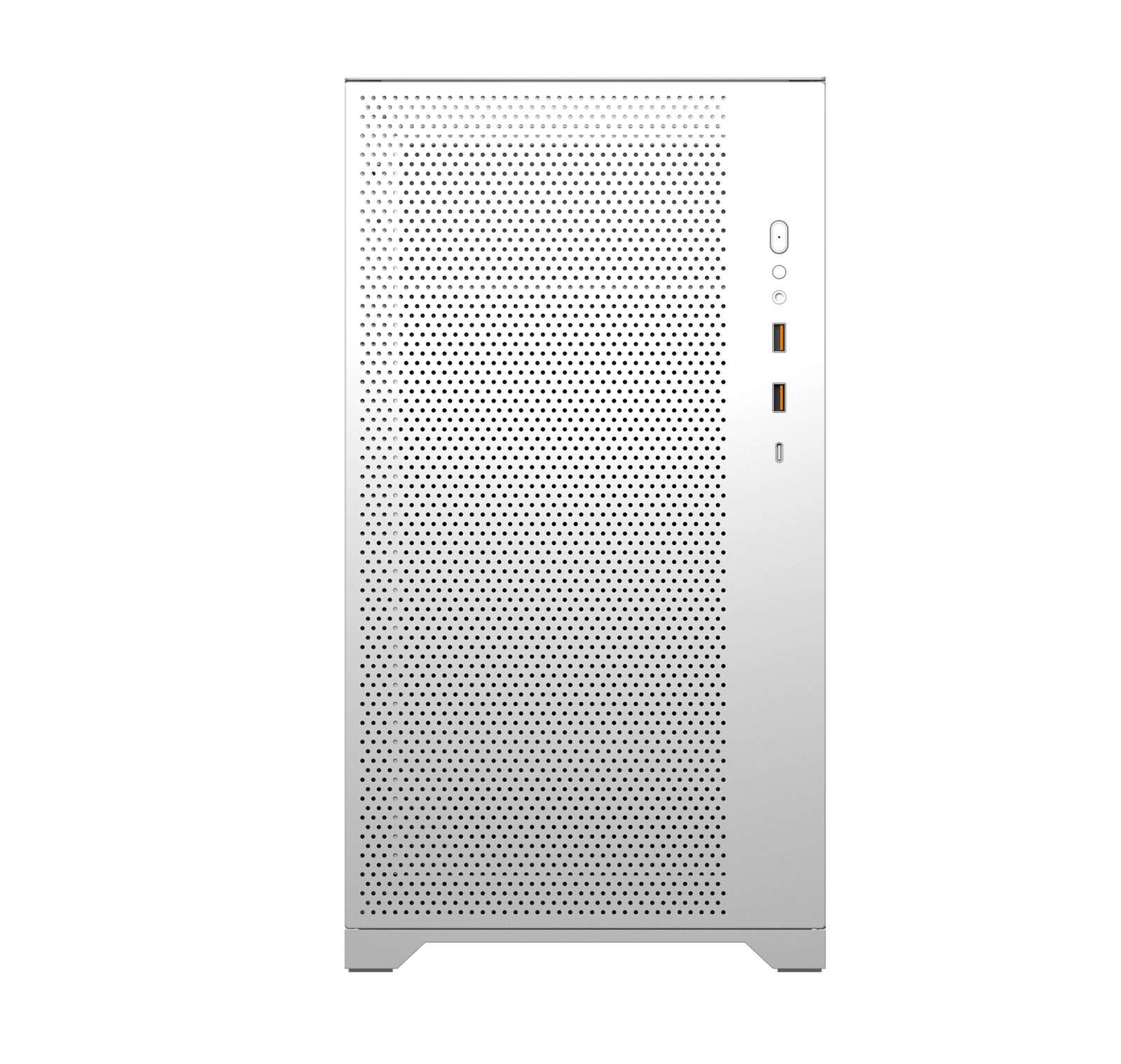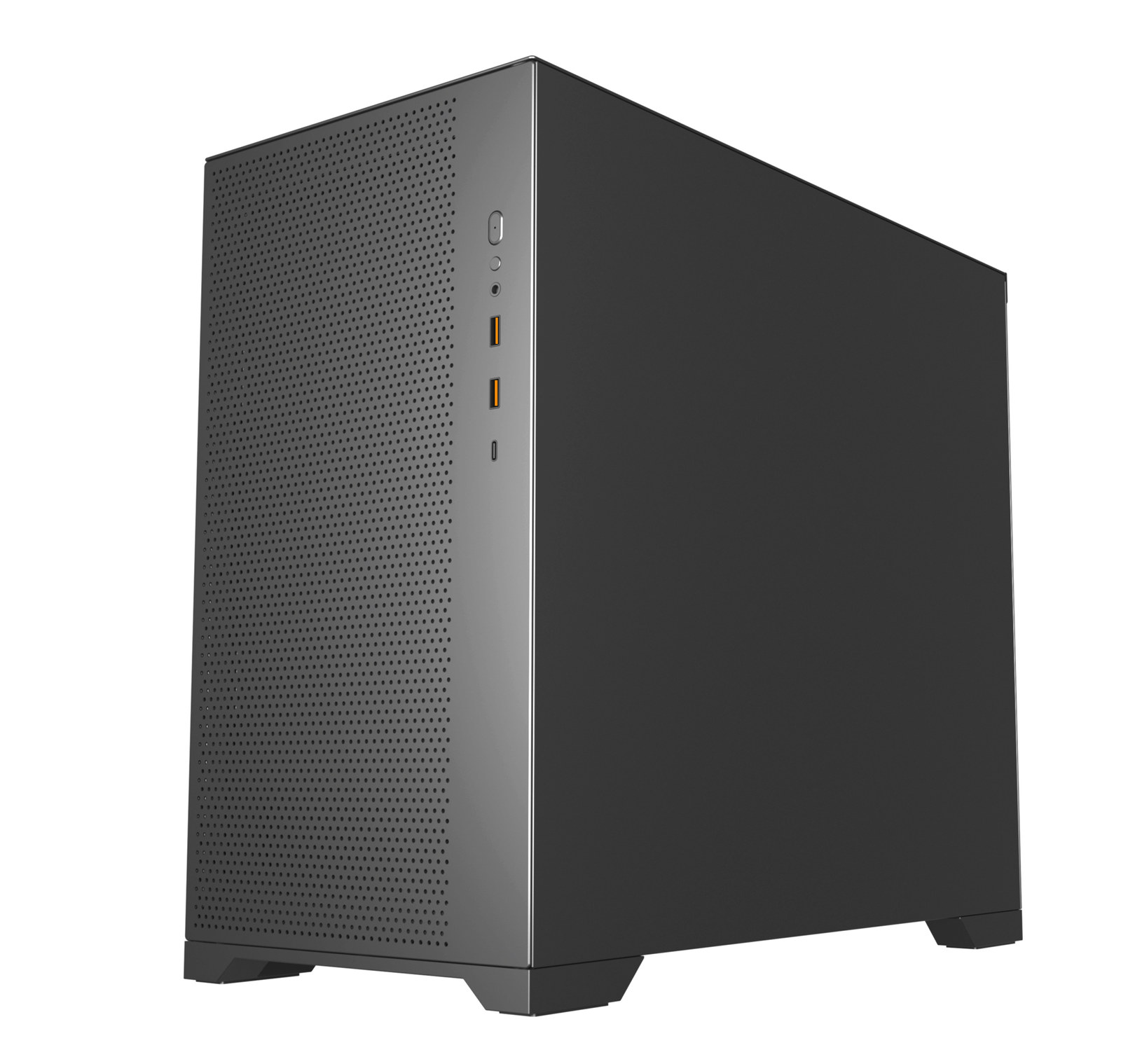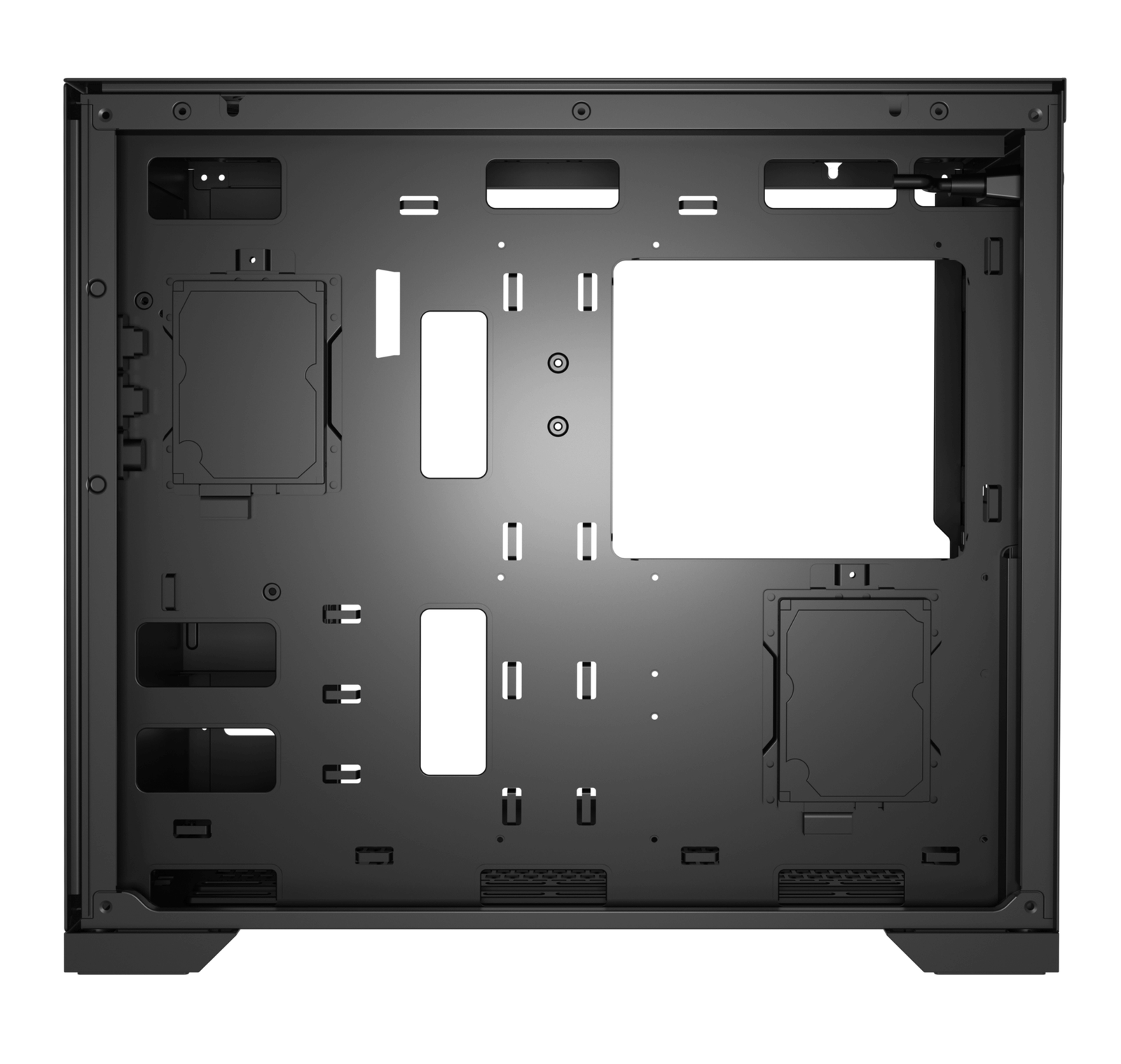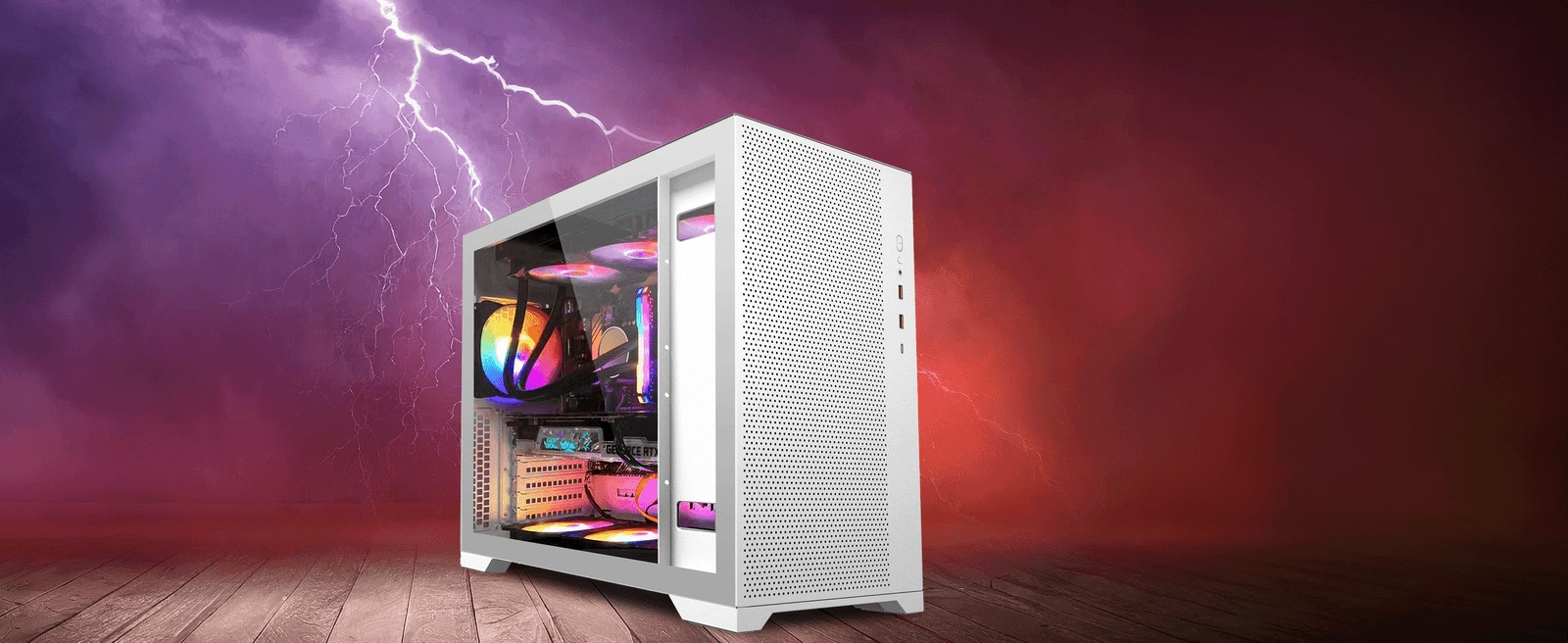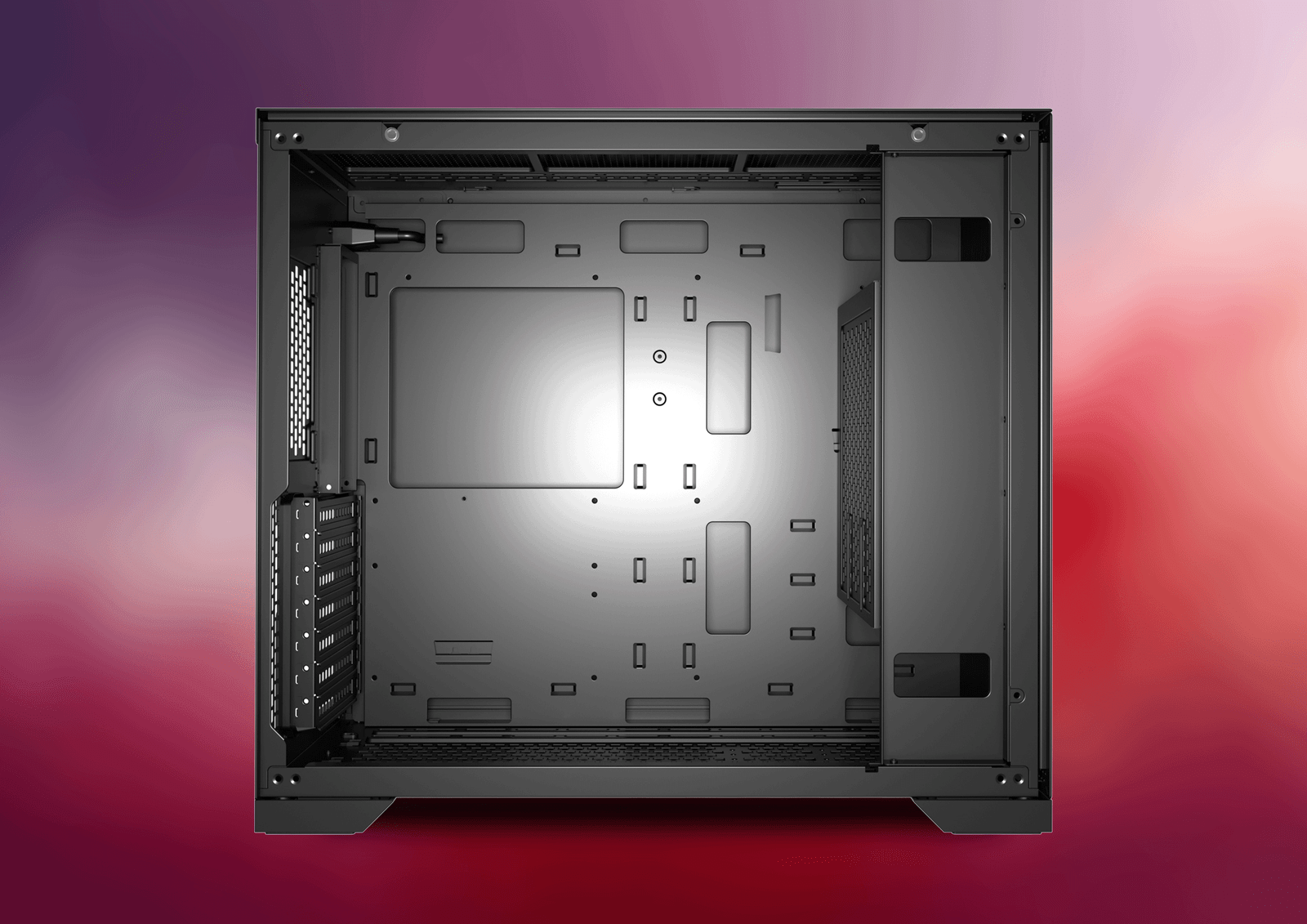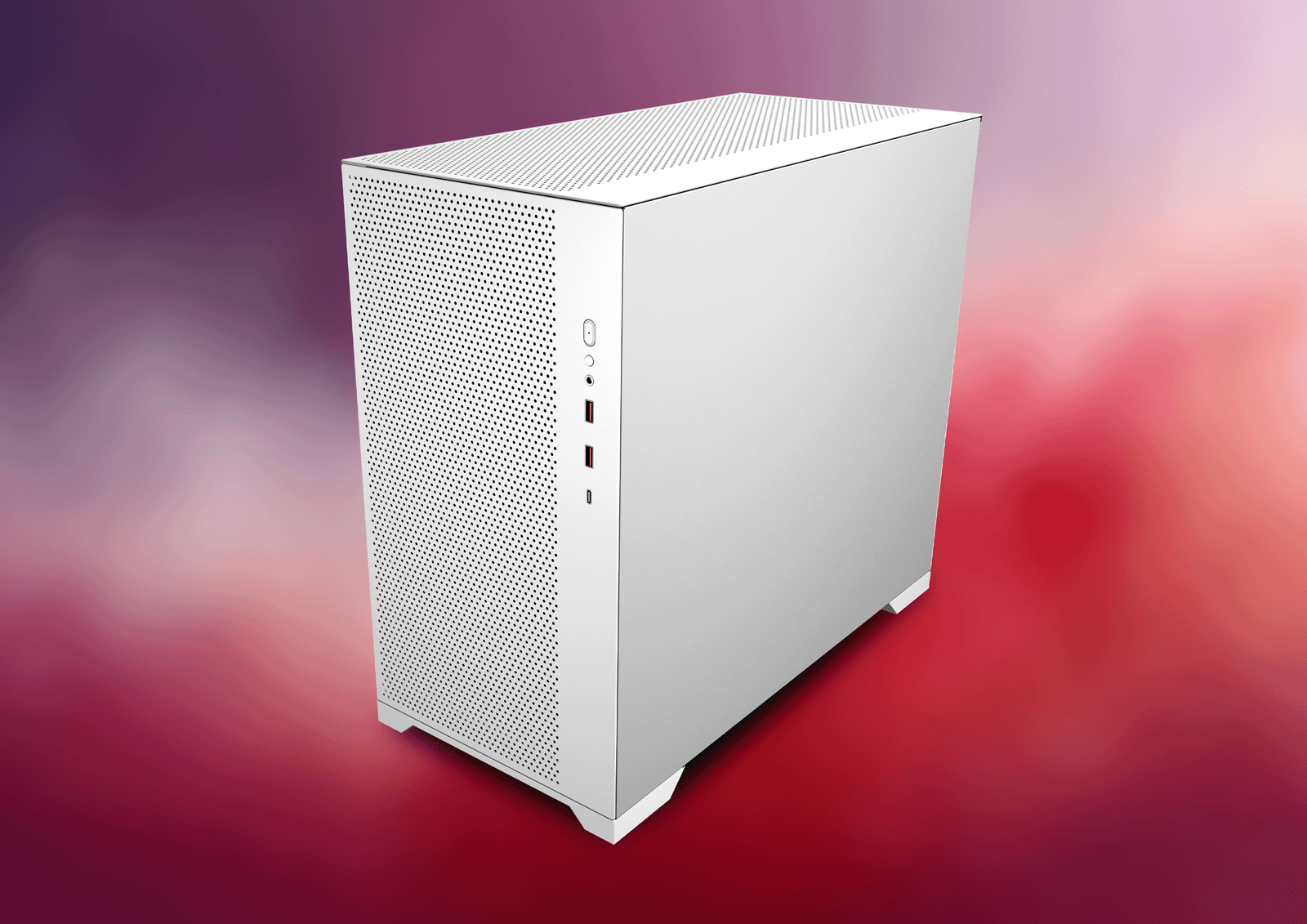KZ 220 Storm Mesh
$0.00
Introducing the Storm Mesh Gaming PC Case – your gateway to unparalleled performance and style. Engineered with three strategically placed mesh panels on the front and top, Storm Mesh ensures optimal airflow circulation, keeping your components cool even during the most intense gaming sessions.
Crafted with precision
The tempered glass side panel showcases your rig’s inner workings while maintaining durability and aesthetics. With Storm Mesh, say goodbye to overheating woes and hello to seamless airflow management, enhancing your gaming experience and extending the lifespan of your hardware.
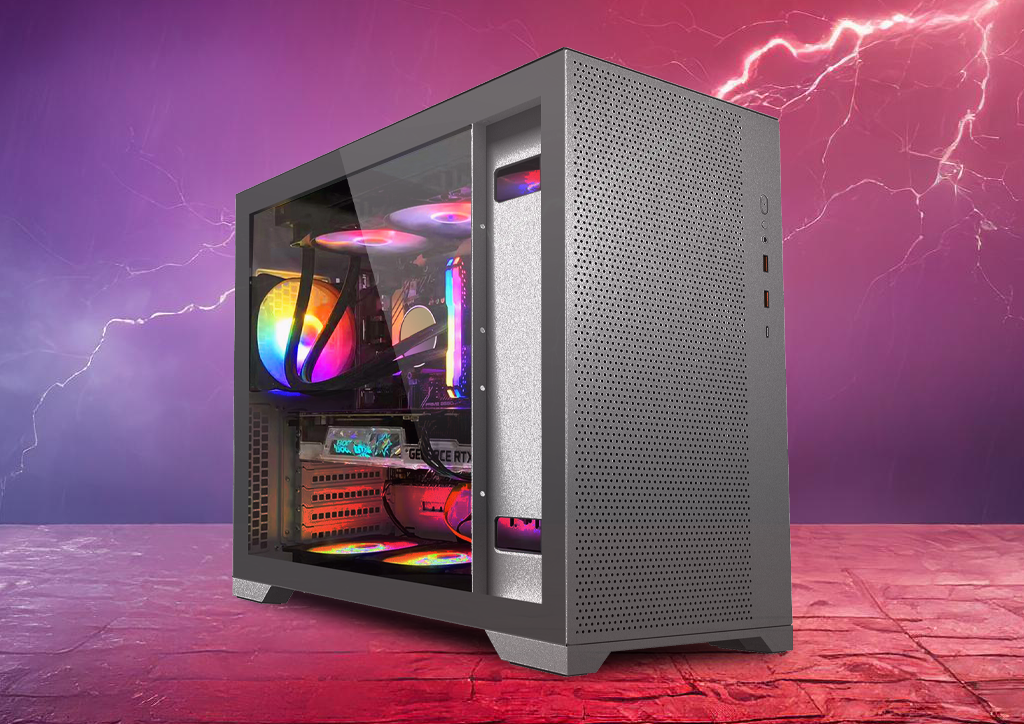
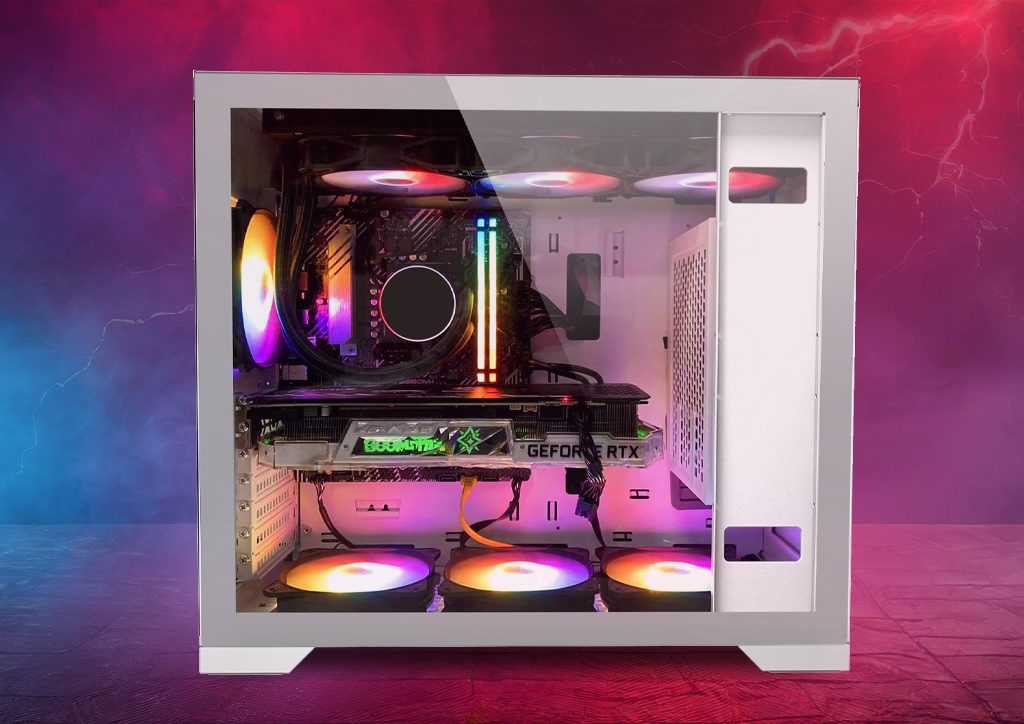
Low Temperatures and High Performance
The Storm Mesh channels a relentless stream of cool air to your high-performance components ensuring your components stay cool under the most intense gaming sessions. Elevate your gaming experience with a case designed to keep temperatures low and performance high
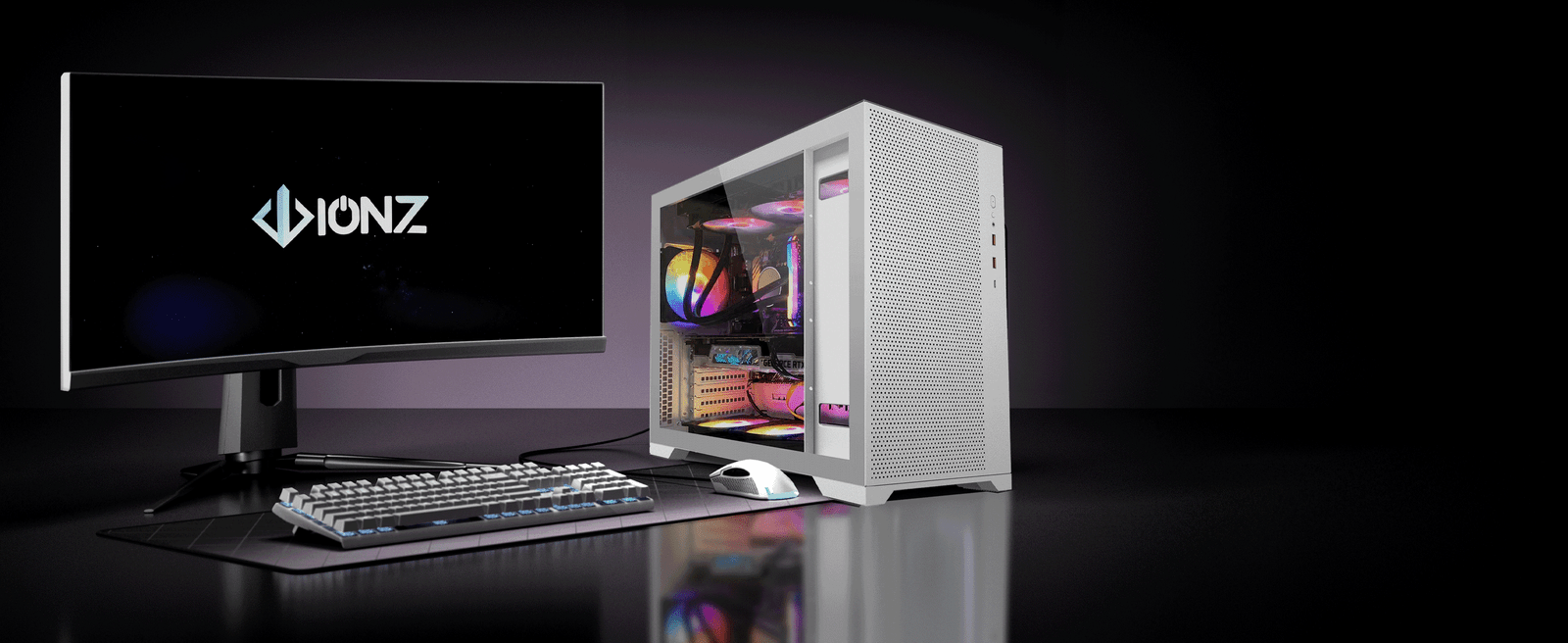
ATX Motherboard Support
GPU support for 380mm cards and CPU cooler height of 185mm
Specifications
- 450 mm (L) x 220 mm (W) x 408 mm (H)
- Fan Support : 7 x 120mm or 6 x 140mm
- GPUs up to 380mm
- CPU cooler height up to 185mm
- AXT / Micro ATX / ITX motherboards supported
- Tempered glass side panel
- Front and top mesh panels
Frequently asked questions
PWM case fans have an advantage over DC case fans in terms of airflow, as they can spin faster when the system is hot and generate more airflow
Improved Airflow: Mesh PC cases typically have a more open design with perforated metal panels, allowing for better airflow compared to solid panels like glass. This helps in keeping the components cooler, which can result in better performance and longevity.
The size of the computer case depends on your motherboard form factor and the components you plan to install. Common sizes include ATX, Micro-ATX, and Mini-ITX. ATX is the most common and offers the most space for components, while Micro-ATX and Mini-ITX are smaller and more compact.
No, not all computer cases are compatible with all motherboards. Computer cases are designed to fit specific motherboard form factors, such as ATX, Micro-ATX, and Mini-ITX. It’s important to check the compatibility of your motherboard with the case you choose.
Look for features such as ample space for cable management, good airflow with fan mounts, removable dust filters, tool-less drive bays, and ample space for expansion and upgrades. Additionally, consider the aesthetics and any specific requirements you may have, such as RGB lighting or tempered glass panels.
Airflow is crucial for maintaining optimal temperatures for your components, especially the CPU and GPU. A case with good airflow helps dissipate heat effectively, preventing overheating and potential damage to your hardware. Look for cases with well-placed fans, mesh panels, and proper ventilation.
Not all computer cases are designed to accommodate liquid cooling systems. Look for cases with radiator mounts and enough clearance for your chosen liquid cooling solution. Some cases are specifically designed with liquid cooling in mind and may have dedicated mounting points and support for radiators of various sizes.
Check the maximum GPU length supported by the case and compare it with the length of your graphics card. Ensure that there is enough clearance between the GPU and other components, such as drive bays and the power supply. Some cases also have removable drive cages to accommodate longer graphics cards.
